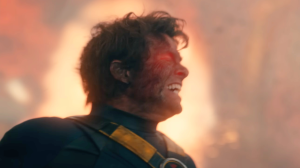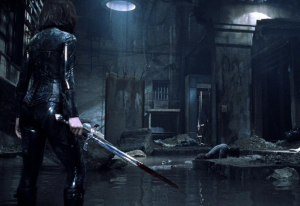Director Timo Tjahjanto has suggested that studio complications are behind the years-long delay of the American remake of Train to Busan, previously titled The Last Train to New York. The filmmaker took to X to clarify his position on the long-gestating project, stating: “I’ve been ready since 2020, but when a film is stalled, that’s not up to the director.” This marks the first significant update on the zombie thriller remake since Warner Bros. removed it from their release schedule in July 2022 after initially announcing an April 21, 2023, theatrical date. The project, which has horror heavyweight James Wan attached as producer and It screenwriter Gary Dauberman penning the script, represents one of the more high-profile Asian-to-American horror adaptations in recent years, yet continues to face unexplained obstacles despite having assembled an accomplished creative team nearly half a decade ago.
Videos by ComicBook.com
The development history of the Train to Busan remake has been marked by promising announcements followed by prolonged silences. Warner Bros. and New Line Cinema first began developing the project shortly after the original film’s international success in 2016, with momentum seemingly building in February 2021 when Tjahjanto, known for The Night Comes for Us and segments in the V/H/S anthology series, was announced as director. By December 2021, the studio had officially titled the film The Last Train to New York and scheduled its theatrical release, suggesting the project was finally on track. However, by mid-2022, without any casting announcements or production start dates, Warner Bros. quietly removed the film from their release schedule without providing a replacement date or explanation for the delay.
[RELATED: 3 Underrated Zombie Movies You’ve Probably Forgotten About]
The reasons behind the continued delay remain unclear, as neither Warner Bros. nor the producers have provided official explanations for the project’s stalled status. The involvement of Dauberman, who has successfully adapted other properties like It and created entries in The Conjuring universe, initially seemed to indicate the project was a priority. However, Tjahjanto’s recent statement clearly places responsibility on factors beyond his control, suggesting the hold-up stems from studio decision-making rather than the creative team’s readiness. Original Train to Busan director Yeon Sang-ho had previously expressed hope that the remake would be “a completely new creation” with “its very own unique qualities and a new vision” rather than a direct translation, adding another layer of creative pressure to the adaptation process.
Why Train to Busan Remains One of Zombie Cinema’s Most Influential Zombie Films

The continued interest in remaking Train to Busan stems from the original’s unprecedented impact on zombie cinema and international horror. When Yeon Sang-ho’s film premiered at the 2016 Cannes Film Festival’s Midnight Screenings, it immediately distinguished itself through its confined setting, a high-speed train traveling from Seoul to Busan during the outbreak of a zombie apocalypse. The film grossed over $98 million worldwide against a modest $8.5 million budget, becoming the highest-grossing Korean film in Malaysia, Hong Kong, and Singapore while achieving both commercial success and critical acclaim in Western markets. Its 94% Rotten Tomatoes score and enthusiastic reception from horror fans demonstrated how the film transcended language barriers through its universal emotional core and innovative approach to familiar zombie tropes.
Train to Busan has since spawned an animated prequel, Seoul Station, and a standalone sequel, Peninsula. The pressure to honor this legacy while creating something fresh presents a delicate balancing act that might partly explain the studio’s hesitation to rush production. Tjahjanto, whose work on The Night Comes for Us demonstrated his ability to create visceral, emotionally resonant action, seems well-suited to capture the original’s intensity, yet his comment suggests he hasn’t been given the opportunity to truly begin that process despite being prepared for years.
The original Train to Busan is currently available for streaming on Netflix.
Do you think The Last Train to New York will ever be made? Or is the project dead? Join the discussion in the comments!








